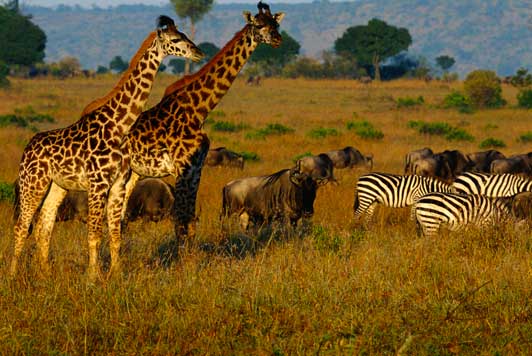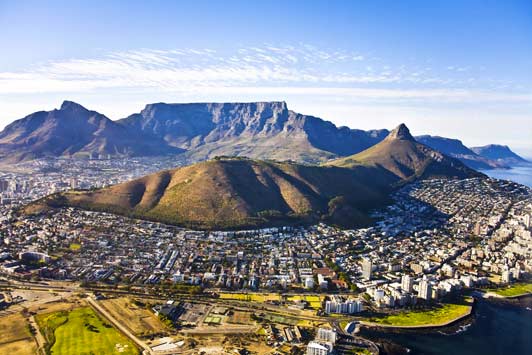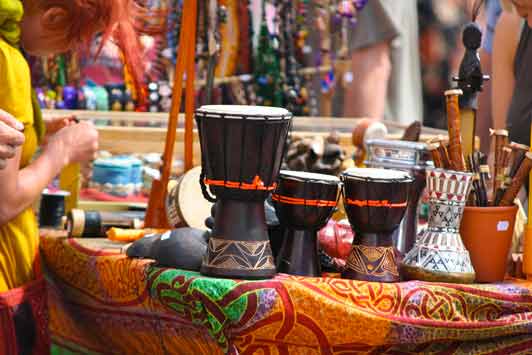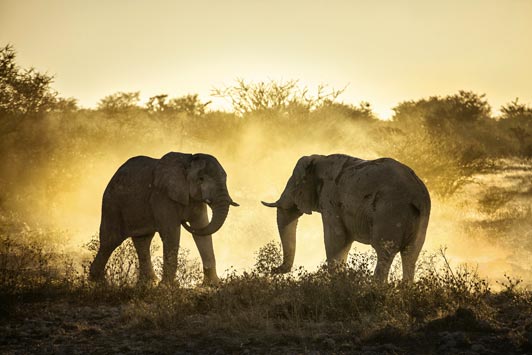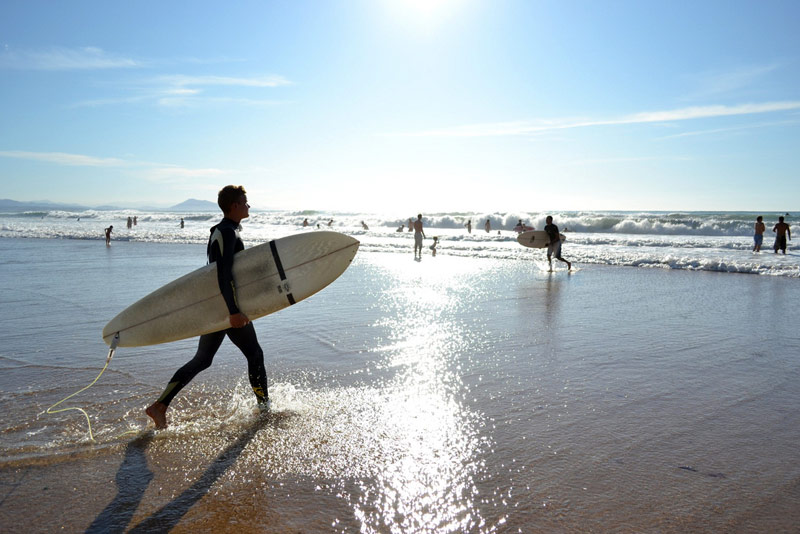At ESL, we started a major sustainable development program in 2008. Since then, we have always considered questions of sustainability when making business decisions and our company has become not only greener and more socially aware, but more efficient as a result. Part of our responsibility as a leader in the industry is to encourage our partners to use best practice in their own local environments, which are often very different from our own.
Our CSR Self Assessment tool was developed to encourage partner schools to think about sustainability and to develop their own strategies. As well as encouraging best practise, it also gives us the chance to see what challenges our partner schools face around the world, and to highlight good work. A couple of our partner schools in South Africa have been making big strides in the right direction. What’s more, they offer the chance for ESL students to get involved and make a difference.
A mix of diverse nature, warm weather and great value make South Africa a popular destination for an English course and our carefully-selected partner schools have always gone a long way to look after their students. In the last couple of years, they have also started addressing the challenges of sustainable development, some of which are unique to South Africa, some of which are universal.
Chris Roberts, Centre Director of EC Cape Town, says that “non-delivery in terms of socio-economic development, in particular in the field of education and poverty” is a big challenge in South Africa, and that private companies increasingly have to step in where official development is inadequate or absent. For EC, this has led to involvement with Barcelona House Orphanage in the impoverished township of Gugulethu, outside of Cape Town. “The majority of the 22 children staying in this orphanage are HIV + and their parents have died also because of HIV/AIDS… although the current government has started on housing development for people living in this area, it will literally take decades for the enormous backlog to be dealt with.”
EC Cape Town’s staff visited the orphanage on 14th April this year to start work on a vegetable garden which now provides regular food for the children living there. EC now supplies daily necessities like food, clothing and bedding and, at the end of September this year, the school will supply books and some computers in order to create a small library for the children.
Chris continues: “It is extremely rewarding for us to see that the time and effort we have been putting into this orphanage is paying off. EC teachers and staff visit the orphanage every second Saturday to share their knowledge, assist in the garden, play football with the kids but most of all to give their time to the less fortunate. If anything, I have seen over the past couple of months how these kids look forward to EC students and staff visiting them and ultimately create a sense of hope for the youngsters.”
Support for the Barcelona Orphanage is just one project. Through an initiative started by EC’s CEO Mike Xuereb, the school provides a two-bedroom apartment for Andiswa Moni, one of the local cleaning staff who had previously been living with her children in a “shack”. The school will pay the rent on the apartment for 18 months until Andiswa qualifies for low-cost housing which she can afford herself.
EC also assists a local primary school with the aftercare of its children, for example helping them with their English homework and to develop their English through craft.
Shaun Fitzhenry from LAL Cape Town expands on the role of South African businesses in the country’s development: “Every South African who can afford to be involved [in social development projects] should be.”
LAL Cape Town has been working with an organisation that builds pre-school centres in the townships, sending their maintenance team, providing the materials and making sure that the centres are maintained. This gives the kind of support that is not always provided by official sources in South Africa. But finding the right projects to get involved in can also be a challenge and the school had to actively search for “projects that are functionable and sustainable… these are not necessarily well known, but they must be well run.” During their research, LAL found certain charities that did not deliver on what they promised or were poorly managed, so they were happy to finally find a project where they could make a tangible long-term difference.
During their quiet season, LAL runs free English courses for staff, some of whom come from the deep, rural areas in the Eastern Cape where English is rarely heard. Being able to understand and speak English is a big step on anyone’s career ladder and is another gap in state provision in South Africa. Plans are afoot at the school to increase the variety of courses offered to staff, to include financial management and computer literacy.
Environmental development
In a developing country like South Africa, humanitarian and social sustainability projects take greater prominence than environmental issues, but our partner schools are also actively working to improve their environmental impact. Often, positive environmental actions can also bring cost savings in a country where energy prices have doubled in the last four years.
Shaun from LAL highlights various positive steps that LAL has taken, including the introduction of solar water heating in the school’s recently refurbished student accommodation, along with the introduction of low water usage systems including toilets and showerheads. Water conservation is a significant issue in Africa and “South Africa is basically at maximum capacity with its water resources… people need to be more aware of water wastage and we are looking at how to make best use of our water supplies.” That’s why the school stopped washing its paved areas daily with water. “We are doing what we can, but we are trying to do more… many South Africans didn’t have access to water for many years and received little environmental education from the state.”
Provision for recycling in South Africa is a long way behind Western European standards but both LAL and EC recycle a range of materials including paper, batteries and printer cartridges. One way LAL has been saving paper is through using course books instead of photocopied handouts for classes and regularly reminding teachers that good teaching is based on good communication and methodology as opposed to endless pieces of paper. “The challenge is making people understand that by printing one less sheet per day they are making a positive impact” says Shaun.
What can you do to make a difference?
We offer a wide range of volunteering programmes, where you can learn English in South Africa and put your language skills into practise giving something back to the local community. Our volunteering programme run in partnership with EC includes a minimum of four weeks of language tuition followed by up to six months of volunteering on a local project, such as the orphanage highlighted by Chris. Alternatively, whatever kind of course you book with our partner language schools in South Africa, be sure to ask about the local projects if you wish to take part.
Contact us to find out more about volunteering in South Africa.
